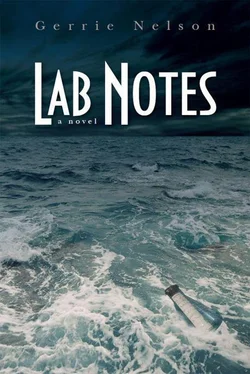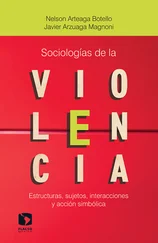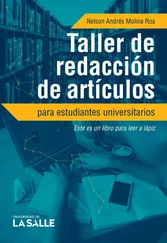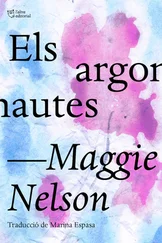Just then the Kogi shouted from their perch atop a nearby rock. They pointed to an Andean condor soaring overhead. “A sign,” they yelled.
“A sign of what?” Diane shouted back.
“An airing. A telling.”
They watched the condor dip and glide majestically then climb again.
Diane shifted her gaze from the bird to Olimpia and said, “How well acquainted are you with the Carreras?” Her voice held an edge.
Olimpia’s jaw tightened. She continued watching the condor. The ancient bird swooped down the cliff face displaying its far-reaching wings, its dark underbelly, its tucked talons.
Diane waited. She thought Olimpia suddenly appeared old, diminished. She was eleven years Diane’s senior, but always had a younger spirit than most adults. At that moment, however, Olimpia looked spent.
Finally, she turned. Diane saw pity in her eyes… Or was it self-pity?
“Where shall I begin?” Olimpia asked. “Everything that I am involves the Carreras.”
* * *
Twenty-three year old Olimpia Garza sat wedged among the supplies in the thirty-five foot dugout she shared with her maid, her bodyguards and her Indian guide. She strained her eyes to watch three work boats carry the Carrera’s dynamite around the broad river bend. Relieved the explosives had been sent on ahead, Olimpia settled back and marveled at her good fortune in joining the Carrera’s logging expedition.
Her uncle, Padre Garza, had not written her that Gabriel Carrera would be in Turbo. Remarkably enough, Gabriel was even handsomer than his society page photographs. The pictures Olimpia had seen were of a tall, lean young man with an attractive face. They did not show that his eyes were sometimes gray, sometimes green; or that they reflected a soul full of intelligence and mirth. The newspapers had no way of depicting his powerful presence, his ever-so-gentle touch. Olimpia shook her head to clear it. Madre de Dios! Contain yourself, Olimpia. Stop acting like a giddy schoolgirl. You traveled here to do research, not write poetry.
Olimpia focused her attention on the water up ahead. She had volunteered to help look out for snags or flotsam that could pass under the dugout and sheer the propeller or jam the outboard motor to one side. She felt fortunate that their route had remained clear during her silly musings.
Before dusk on the first two evenings, the canoes nudged into the river bank. The crews set up camps and prepared dinner. Olimpia and Gabriel were drawn to one another. They talked on into the night while the moon transformed the river into a silvery ribbon.
Olimpia told Gabriel of her secret desire to set up an international center for ethnobotany in Bogota some day. Then she asked him: “What is your dream? What do you want to look back on with pride when you are an old man?”
He was silent for a long moment, then he said: “In due course, I would like to use my position to help bring the nether regions of our country out of the dark ages.”
Olimpia wondered if it was a quiver or just fatigue she heard in his voice.
On the last evening before Olimpia and the Carreras were to go their separate ways, Eduardo and Gabriel pulled up to a settlement of thatched huts built off the ground on stilts. They signaled Olimpia’s helmsman to pull in beside them. Eduardo waved the rest of the fleet on to the logging camp, one kilometer up river.
Gabriel spoke to the villagers and arranged lodging for himself, Eduardo and Olimpia in dwellings that stood back off the riverfront. Gabriel and Eduardo’s bodyguards and Olimpia’s bodyguards and maid would sleep in hammocks underneath the huts.
Eduardo covertly rolled his eyes at Olimpia and Gabriel when the village headman invited them for a supper of fried toucan. Eduardo said, “Thank you, but I promised to eat with the crew.” And he headed for his boat.
Olimpia and Gabriel dined with the locals. The toucan was palatable once they got past the stringy blueness of the meat. Afterwards, they thanked their host, and Gabriel escorted Olimpia to her hut. He handed her a flashlight at the foot of the ladder and told her he would return. Olimpia climbed up to her room and turned on a bare light bulb hanging from the ceiling. The headman had promised to leave the electric generator running for a couple hours.
Ten minutes later, Gabriel rattled her ladder and called to her. Olimpia helped him bring up two palm mats, a kerosene lantern, two bottles of Carrera Vineyard wine, plastic cups and a battery-operated shortwave radio. Gabriel placed the radio on the table, tuned in a news station and spread the mats on the floor. Then he dug a deck of cards out of his pocket and challenged her to a game of gin rummy.
Olimpia had never played the game, but she enjoyed learning it. They sat cross-legged on the mats happily playing cards and sipping wine. The radio crackled in the background.
Olimpia said, “Short-wave radios make me feel even more remote from the world than we actually are out here in the wilderness. The radio waves come from way out there, from much much farther than the origin of the transmission.”
Gabriel laughed at her. “It is time to come back to earth. I am one card away from winning again.”
“Gin,” Olimpia said with an impish grin and laid down her cards.
Olimpia was on a run of beginners luck when the electric light went off. Gabriel conceded defeat, then stood up and lit the kerosene lantern on the table. The two of them became enveloped in a sphere of warm yellowish light.
Gabriel tuned the radio dial in and out of static, then grunted with satisfaction when he found a clear music broadcast from New York City. He danced a few steps with an invisible partner, then extended an arm to Olimpia in an invitation to join him. She reached up. Their hands touched, then clasped. A surge of sensations passed through Olimpia, bringing her to a state of near ecstasy. She slowly raised her head and saw in Gabriel’s eyes that he experienced it too. For a moment neither of them moved. They were suspended in a blissful realm of amber-glow and music. Then Gabriel drew Olimpia slowly, slowly up off the mat and toward him. Their bodies touched, then became galvanized.
Olimpia and Gabriel did not dance one step.
A downpour pelted the thatched roof awakening Olimpia from a deep sleep. She moved closer to Gabriel for warmth. He kissed the top of her head, told her it was inconceivable that he should find such love in the midst of that despicable jungle.
He said he would dissuade her from any notions of becoming a scientist. She would bear his children, he said, and when the time came, she would sit by his side at the head of Carrera Industries. He told her he would love her for three lifetimes, even longer.
To protect the locals’ sensibilities, Gabriel descended from Olimpia’s hut while an early morning deluge provided a screen. But he returned shortly.
Breathless, he explained that Eduardo and his dugout had not returned from the crew camp, and someone had tampered with the starter on his boat. He feared the worst. He needed to borrow Olimpia’s boat. Immediately.
“I am coming with you,” she insisted.
Within ten minutes, Olimpia, her maid and the body guards were clambering aboard the dugout as Gabriel backed away from shore. They roared up river, slowing down at the logging camp just long enough to see the crew was gone. Then Gabriel headed the boat upstream toward the blasting site at full throttle.
Just as they reached the turn at the mouth of the tributary, a concussion of cataclysmic proportions jarred the earth, rolling the boat from side to side. Olimpia was transfixed by the chaos erupting around them: The river shot skyward in four-foot spikes. A blast of wind tore at the trees. Monkeys ran screaming, and birds took off in confused flight. An unmistakable rumbling sound followed.
Читать дальше












